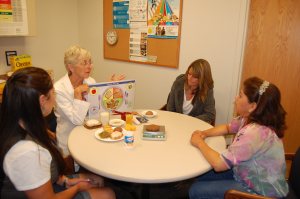There is no cure for Type 2 Diabetes, but there are ways to avoid progression…
Beating Diabetes to the Punch

Diabetes is one of the nation’s largest growing health concerns, with more than 25.8 million Americans diagnosed with the disease and an estimated 79 million coping with its precursor, prediabetes.
Diabetes is commonly referred to as Type 1 or Type 2 . In both, the body is reacting to blood glucose (blood sugar) levels that are too high. This is due in part to the lack of insulin produced by the body and/or the inability of the body to use insulin properly.
Type 1 diabetes usually presents in childhood where no insulin is produced by the body. A person with Type 1 must take insulin to survive. Type 2 is more commonly associated with adult onset and occurs when the body produces some insulin but the cells don’t utilize it well. A person with Type 2 diabetes may control the disease through diet and exercise, oral diabetes tablets, or , in severe cases, need insulin.
Prediabetes is the stage the body’s blood sugar levels are higher than normal but not yet high enough to be diagnosed as diabetes. By treating the elevated blood glucose early on, you might prevent or delay the onset of full blown diabetes.
Take our short quiz to test your Type 2 diabetes knowledge. Answer true or false to the following questions. Don’t peek at the answers!
- If you get prediabetes, you can’t avoid Type 2 diabetes?
- Diabetes can affect your vision?
- Type 2 diabetes only occurs in adults?
- Having Type 2 diabetes just means you can never eat foods that contain sugar?
- You can’t know if you will get diabetes; it just happens?
- Slow-healing cuts or bruises can be an indicator of Type 2 diabetes?
Answers
1. False. “It’s important to know if you have prediabetes because at this stage, you can take steps to help reverse its progression to diabetes,” says Quang Nguyen, DO, endocrinologist with Carson Tahoe Physician Clinics and Assistant Professor of Medicine at the University of Nevada School of Medicine. Things such as exercising for 30 minutes per day, five times a week and losing about seven percent of your body weight can dramatically reduce the risk of prediabetes progressing to Type 2 diabetes. Additionally, treating the elevated blood sugar early on might prevent or delay the onset of full blown diabetes.
2. True. Blurry vision or blindness can result from damage to the blood vessels around the eyes caused by diabetes.
3. False. Rising rates of childhood obesity are resulting in more and more children developing prediabetes and Type 2 diabetes.
4. False. After discussing your condition with a physician and identifying the foods that cause fluctuations in blood sugar levels, the most important thing is to control your overall food consumption and monitor blood sugar levels.
5. False. There are several risk factors for developing the condition, including being 45 or older, having high cholesterol, being overweight, and hypertension, ethnic background, and family history of the disease. A simple blood test administered by your primary care physician can determine if you have or are at risk for prediabetes.
6. True. Diabetes negatively affects circulation, limiting the oxygen and nutrients that wounds must have to heal. It can also cause nerve damage that could prevent you from noticing and treating a wound, and could also cause disruption in the immune system, affecting healing and cell production. Other symptoms include: increased thirst and hunger, excessive urination, blurred vision that comes and goes (discussed in question 2), feeling very tired, slow healing infections, burning, tingling, and numbing of the feet.
Fortunately, diabetes is a “self-managed” disease. You must learn to balance your medication, food, and activity. Learning about diabetes and self management skills can give you better quality of life and reduce your risk for complications. Ongoing support can help you be more successful and feel in control of your diabetes and your life.
For more information regarding diabetes or testing for diabetes, contact your doctor. Carson Tahoe’s Diabetes Education also offers valuable information and support – (775) 445-8607



